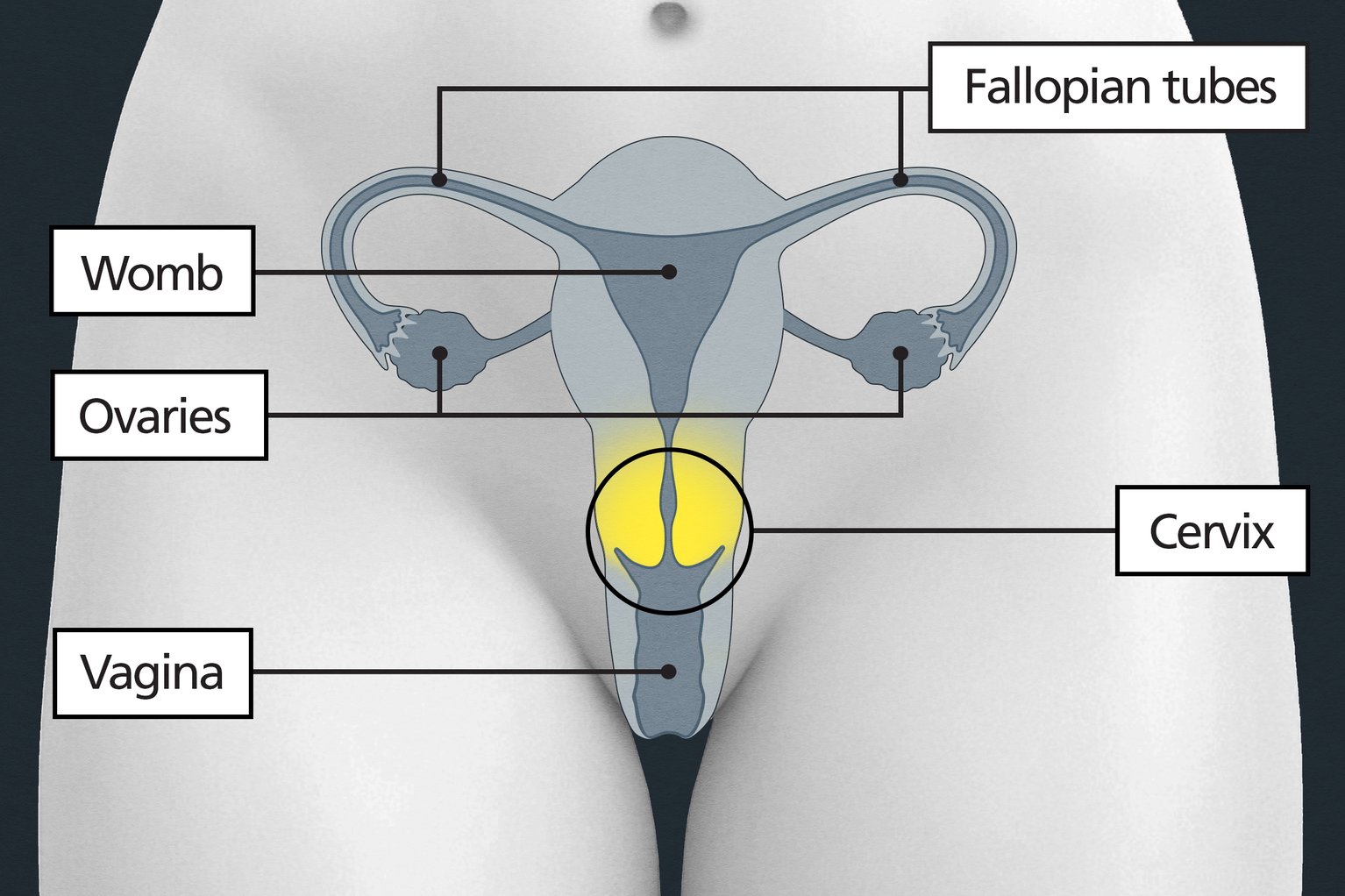 Cervical cancer is a cancer that’s found anywhere in the cervix. It’s most common in women aged between 30 and 35, but it can happen at any age.
Cervical cancer is a cancer that’s found anywhere in the cervix. It’s most common in women aged between 30 and 35, but it can happen at any age.- Anyone with a cervix can get cervical cancer.
- The cervix is the opening between the vagina and the womb (uterus).
- It’s part of the reproductive system and is sometimes called the neck of the womb.
- Nearly all cervical cancers are caused by an infection from certain types of human papillomavirus (HPV).
- You can reduce your risk by attending cervical screening, which aims to find and treat changes to cells before they turn into cancer.
- Cervical cancer usually develops very slowly. How serious it is depends on how big it is, if it has spread and your general health.
Main treatments for cervical cancer
Cervical cancer is often treatable.
The treatment you have will depend on:
- the size and type of cervical cancer you have
- where the cancer is
- if it has spread
- your general health
It will usually include surgery, chemotherapy or radiotherapy. It may also include treatment with targeted medicines to treat the cancer.
The specialist care team looking after you will:
- explain the treatments, benefits and side effects
- work with you to create a treatment plan that’s best for you
- talk to you about the impact that treatment may have on your fertility
You’ll have regular check-ups during and after any treatments. You may also have tests and scans.
If you have any symptoms or side effects that you’re worried about, talk to your specialists. You do not need to wait for your next check-up.
Surgery
Surgery is often the main treatment for cervical cancer, especially if the cancer is found early.
There are several surgeries used to treat cervical cancer.
Different surgeries involve removing:
- part of the cervix – only possible if the cancer is very small
- the cervix, and sometimes the upper part of the vagina – the womb is not removed, so it’s possible to get pregnant in the future
- the cervix, upper part of the vagina and the womb (hysterectomy) – can include removing the ovaries and fallopian tubes
- the cervix, womb, ovaries and fallopian tubes (if they have not already been removed), and all or parts of the bladder, bowel, vagina or rectum – this is only offered if the cancer has come back and other treatment is not possible
You may need to have some lymph nodes, which are part of the body’s drainage system, removed.
Recovery from these surgeries can take a long time depending on the surgery. The specialist team looking after you will discuss all the benefits and side effects.
Chemotherapy
Chemotherapy uses medicines to kill cancer cells.
You may have chemotherapy for cervical cancer:
- with radiotherapy (chemoradiotherapy) as the main treatment for your cervical cancer
- after surgery (usually with radiotherapy) to help stop the cancer coming back
- if the cancer is advanced, has come back or if it’s spread to other parts of your body
Radiotherapy
Radiotherapy uses high-energy rays of radiation to kill cancer cells.
You may have radiotherapy for cervical cancer:
- as the main treatment if the cancer is large or has spread
- after surgery, usually with chemotherapy (chemoradiotherapy), to help stop the cancer coming back
- to help improve symptoms, like bleeding
Radiotherapy for cervical cancer can be given from outside or inside the body (brachytherapy).
Targeted medicines and immunotherapy
Targeted medicines kill cancer cells.
Immunotherapy is where medicines are used to help your immune system kill cancer.
You may have these medicines if you have advanced cervical cancer or the cancer has come back.
The aim is to help make the cancer smaller or stop it getting any larger, not to cure the cancer.
What happens if you’ve been told your cancer cannot be cured
If you have advanced cervical cancer, it might be very hard to treat. It may not be possible to cure the cancer.
If this is the case, the aim of your treatment will be to limit the cancer and its symptoms, and help you live longer.
Finding out the cancer cannot be cured can be very hard news to take in.
You’ll be referred to a special team of doctors and nurses called the palliative care team or symptom control team.
They’ll work with you to help manage your symptoms and make you feel more comfortable.
The clinical nurse specialist or palliative care team can also help you and your loved ones get any support you need.
Where to find help and support for cervical cancer
You and your loved ones will be supported throughout your treatment by a group of specialists.
The clinical nurse specialist, or another member of your specialist team, will be able to give you information on local support services that you may find helpful.
There are also national cancer charities that offer support and information about cervical cancer.
